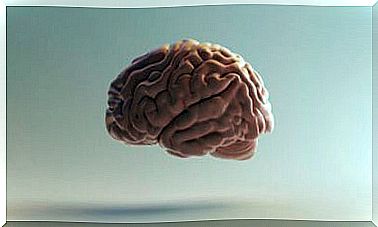Teach To Think

Educating is not easy, and even less is teaching to think. Since both things take effort and dedication, and in most cases, we have not been taught since we were little and, therefore, we do not know how to do it with our little ones.
To teach thinking, the first thing we have to consider is that our children are capable of doing it. And it is that, despite their young age, they have the ability to begin to develop their logic, reasoning and strategies, so necessary for life, as learning to make decisions.
Obeying is not educational
Contrary to what we are used to hearing, obeying does not educate, it does not teach, it only serves to generate submission and ensure that everything will be under our control when we get our little ones to obey us.

Obey can be asked of a pet, since it does not think and its training happens because it obeys in exchange for a reward. However, our children, as human beings, even if they are small, have the ability to think, understand and reason. Of course, they have the right to be themselves, with their ideas, convictions and reasoning, even when we do not agree.
The difficulty of educating without submission
Without any doubt, if we look from the perspective of the adult educator, it is much more difficult to educate without asking for obedience, doing it through respect, valuing and teaching our little ones to think.
In childhood, we have the ability to absorb everything that surrounds us, and gradually get an idea of the world, adapted to our age. This means that if we teach children to obey and stay under that restriction, it will be an easy task for the adult, handling the situation with imposition and authoritarianism, inducing fear of punishment and their reactions if they are not obeyed.
However, the little one will learn that it is not important to the world, feeling insecure about it. Therefore, the difficulty of education is, without a doubt, when we try to teach the little one to think, to understand, to draw their own conclusions and reflections.
Dedication, time and stimulation
Teaching to think requires dedication, time, patience and knowing how to do it, using the appropriate strategies. For this, a thoughtful, respectful attitude is needed, and from love, so that the stimulation leads us to good results.
Without any doubt, these results mean allowing the child to grow up emotionally healthy, to feel loved, respected and listened to. Therefore, the little one will grow up confident and strong to face life’s adversities as an adult, knowing how to reflect on them and make the best decisions.

How to teach to think?
To teach thinking, it is important to take into account a series of educational strategies that will allow the little one to grow, defining himself before life and before us, learning and understanding the world and what is most beneficial for him and for his path in life, always counting on our love, support and closeness. These strategies are:
- First of all, show and express to our son that he is the most important thing for us in life, transmitting the affection, love and recognition he deserves for his improvement, learning and growth.
- Offer him the opportunity to make his own way, that is, not give him things done, solved or finished, but, from the support and accompaniment, allow him to do it, even at the risk of making a mistake and even if it means rectifying later.
- Communication and language are essential. By this, we mean the verbal, the non-verbal and the emotional. It is very important to speak to them clearly, simply and lovingly.
- Faced with his reasoning and small decisions, it is convenient to listen, explain the consequences of them, and in some cases, let him experience the consequences of his own convictions, so that, from experience, he draws his own reflections and his own learning.
- Reinforce, be positive with them in their small achievements and discoveries and motivate them towards what the adult believes is important for them to learn, for example, hygiene habits, study, behaviors, etc …
Leave impositions behind
It is important to reach agreements, consensual consequences, so that from communication, understanding and negotiation, the little ones are part of the decisions, of the norms and values that we want to teach them and, in short, of their own lives, thinking for what motivates and excites them the most.
In this way, our children will grow up emotionally healthy, self- confident and capable of making their own decisions in life.









